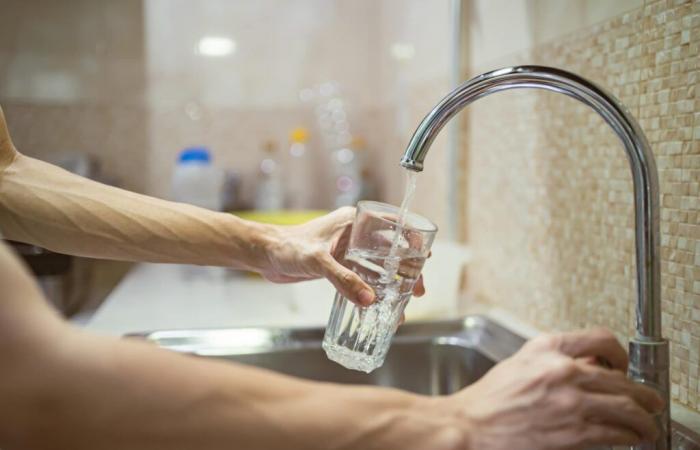Why does hot tap water present A danger to health?
In France, drinking water benefits from strict sanitary control standards until the entrance to the accommodation. However, domestic hot water is a notable exception. Unlike cold water, it is stored in a production ball or a water heater, often for several hours, even several days. This stagnation promotes the development of biofilmsthat is to say heaps of tartar and bacteria which colonize the internal walls of tanks.
These bacteria, some of which can be pathogenic, resist temperatures affected by conventional water heaters. Drinking this water directly exposes to the risks of gastrointestinal infectionslike diarrhea or gastroenteritis. Christophe Mercier Thellier, hygienist microbiologist, recalls that “hot tap water is never designed to be drunk: it can transport invisible germs capable of provoking digestive disorders”. This risk is increased for the elderly, children and immunocompromised individuals.
For this reason, It is formally not recommended to drink hot water out directly from the tap. It is preferable to heat cold water yourself to make it suitable for consumption, using a kettle or pan.
Other risks hidden behind consumption reckless tap water
The question of temperature is not the only pitfall. The quality of the tap water also depends strongly on the state of private pipes. In old buildings, the pipes can contain lead, a heavy metal whose chronic ingestion, even in low doses, is associated with neurological and cardiovascular risks.
The chlorineadded to guarantee water disinfection during its routing, can also react with natural organic matter present in the network to form trihalométhanes (THM). In the long term and with high exposure, these substances are suspected of increasing the risk of certain cancers, in particular digestive and the bladder. Even if the usual concentrations in France remain much lower than the health thresholds, peaks can occur during periods of high heat or drought.
Finally, the limestoneoften perceived as an aesthetic defect of water, is in reality Not a danger to health. Made up of calcium and magnesium, it even contributes to the contribution of essential minerals, and forms protection against the migration of heavy metals in the pipes.
Here is a summary table to better understand the risks and good practices to adopt:
-| Risque | Origin | Recommended preventive gesture |
|---|---|---|
| Bacterial contamination of hot water | Stagnation in hot water balls | Heat only cold water for consumption |
| Presence of lead in water | Old private pipes | Pour cold water a few minutes before consumption |
| TRIHALOMETHANE training (THM) | Chlorine/organic matter reaction | Let the water stand in an open carafe in the refrigerator |
| Unpleasant taste due to chlorine | Disinfection of drinking water | Ventilate the water before drinking it |
| Bacterial proliferation after storage | Conservation at room temperature | Consume water stored within 24 hours |
Essential gestures to drink water safe tap
To continue to benefit from the ecological and economic advantages of tap water while avoiding unpleasant surprises, Some simple reflexes must be integrated into the daily routine.
First of all, always favor cold water for consumption. If a hot drink is desired, you have to heat cold water yourself in a clean device. This gesture eliminates the risk linked to bacteria proliferating in hot water balloons.
Before drinking, let the water run for a few seconds is also recommended, especially in the morning or after a long absence. This makes it possible to evacuate stagnant water in the pipes and improve its taste.
Regularly maintain breeze-games is another reflex to adopt. These tips screwed on taps can accumulate tartar and impurities. Cleaning them once a month in white vinegar limits microbial proliferation.
If water is stored in a carafe, It must be kept in the fridge and consumed within 24 hours. Beyond that, even clean water can become a cultivation for bacteria.
Finally, it is important to Find out about the quality of your water network with the town hall or the condominium trustee. Quality assessments, transmitted by regional health agencies (ARS), offer a reliable photograph of the locally distributed water.
Drinking tap water is a great habit, but It must be accompanied by a few simple gestures of vigilance. Knowing how to avoid hot water directly out of the tap is one of the fundamental advice to protect your health and continue to take advantage of a good as essential as water.






